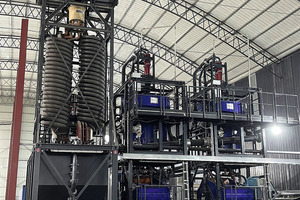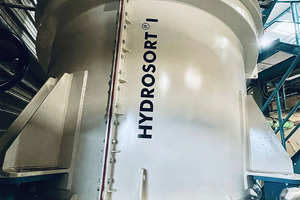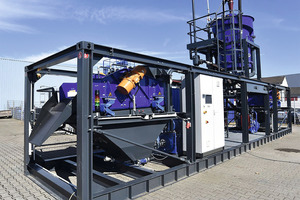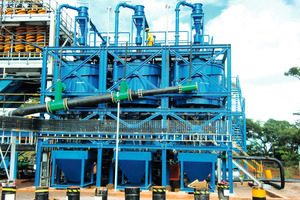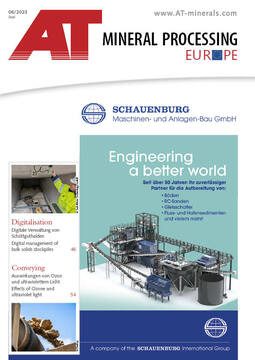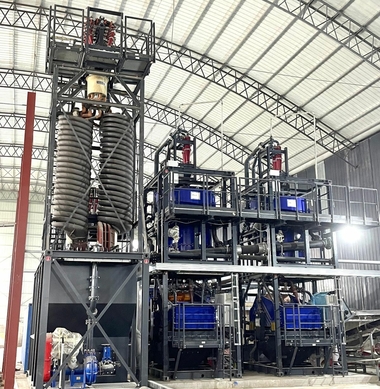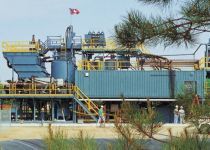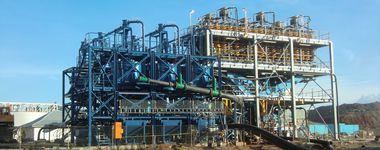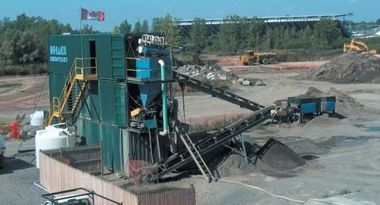Mechanical soil washing processes and their importance for environmental protection
Task and Pretreatment
Mechanical soil washing processes include various process steps designed to clean contaminated soil and remove pollutants. The selection and application of these steps depend on the specific type of soil contamination and the specific objectives of the cleanup.
Typical steps include transport of the excavated soil, storage, pre-separation of coarse ferrous particles using overband magnets, crushing if necessary, and pre-classification of the soil or demolition material. After that, the actual washing process begins, up to the dewatering and storage of the products. In the case of highly volatile contaminants, soil vapor extraction is already required during the excavation process in order to comply with corresponding legal requirements.
Treatment of contaminated soils
After preparation, the contaminated soil is further processed. Essential process steps of the mechanical soil washing are the classification and sorting of the soil material.
Schauenburg Maschinen- und Anlagen-Bau GmbH offers a wide portfolio of turnkey solutions (stationary plants as well as container plants) and single components to design individual soil washing plants according to the requirements. For this purpose, different processes such as upflow classification, the use of hydrocyclones, screening and density sorting are applied.
Upflow classification utilizes the varying settling velocity of particles in aqueous suspensions to separate contaminants from the soil. Material is added to a liquid upflow, with particles of equal settling velocity entering the same product. A material bed in the vessel of the upflow classifier provides disproportionate support for density sorting compared to classification. In principle, the mutual preference of density sorting and classification can be controlled by intelligent selection of the feed particle distribution. The HYDROSORT I and HYDROSORT II models therefore cover a wide range of requirements. With diameters ranging from 800 mm to 8000 mm, the customers have a wide range of equipment available for a variety of throughputs and requirements.
Cycloning is another process based on the differences in the physical properties of the particles. In a hydro cyclone, centrifugal forces act on the particles through an external and internal vortex, exceeding the normal gravitational forces several times over, thus allowing even particles in the micrometer range to be separated quickly and reliably. Schauenburg Maschinen- und Anlagen-Bau GmbH offers a wide range of hydro cyclones, which have been perfected through decades of further development and optimization. Our range includes both polyurethane and steel rubberized hydro cyclones. To minimize wear, our high-quality steel parts come standard with an abrasion-resistant lining. This allows Schauenburg MAB customers to benefit from durable and efficient solutions.
Also Screening machines play an important role in mechanical soil washing. In the soil washing processes, they are mainly used at two points: First, they separate coarse material at the very beginning before the actual washing process, and second, they support the dewatering of the individual products from the upstream process steps. An efficient and logical arrangement of the individual process steps and components is elementary in order to remove contamination from the feeding material in the best possible way.
In addition to single units and stationary large-scale plants, Schauenburg Maschinen- und Anlagen-Bau GmbH also builds container plants with individual components. These can be combined as required to form units that make sense from a process engineering point of view and are adapted to the soil washing task. Each container forms an independent working unit which can supplement or extend existing customer systems. In individual cases, these container systems can also be suitable for solving the soil washing problem on their own.
Schauenburg Maschinen- und Anlagen-Bau GmbH is able to offer tailor-made solutions for every requirement due to an in-house laboratory with test station and a technical office. In close cooperation with customers, the company develops the optimal process, from initial engineering to commissioning of the finished MAB plant.
In a recently completed project, a soil washing plant with a capacity of 200 t/h for the treatment of PFAS contamination was successfully commissioned. Due to their high toxicity, PFAS (per- and polyfluorinated alkyl substances) pose a serious threat to the environment. By using specialized processing methods, Schauenburg MAB is able to completely mechanically dissolve and eliminate PFAS in this plant.
Author:
Dipl.-Ing. Matthias Unger, Managing Director / CEO, Schauenburg Maschinen- und Anlagen-Bau GmbH

